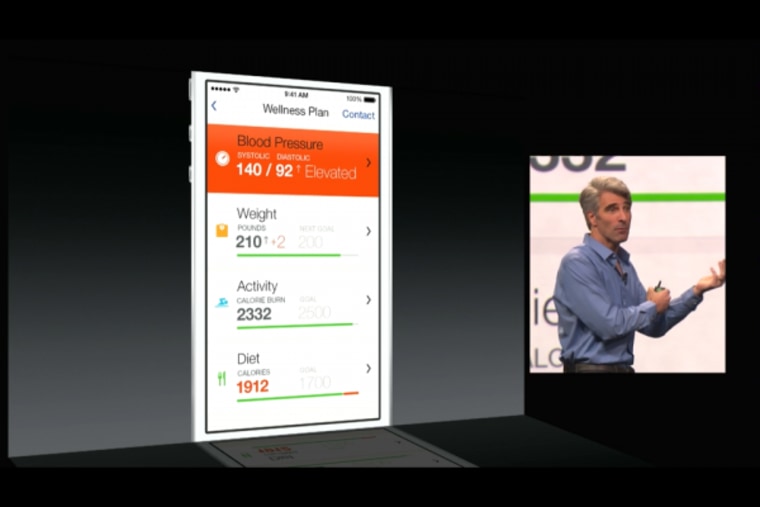Apple is edging its way a little further into health care with the release of new iPhone apps that patients can use to manage their own medical conditions — from diabetes to pregnancy and even depression.
While there are hundreds of health-related apps on the market, Apple wants to put its stamp on a new ecosystem of treatment programs. Rather than build the apps itself, the tech giant developed a set of software tools and templates, called "CareKit," that health-care groups and health-tech startups can use to create their own programs.
Read More: Top U.S. Hospitals Are Signing Up to Try Apple's HealthKit
Apple says it wanted to help developers build easy-to-use apps for patients to record symptoms, get useful information, track their progress and even send reports to a doctor. Experts say the CareKit program could help bring standards to a relatively new and unruly industry, while giving Apple a toehold in the growing health-tech market.
CareKit apps hitting the Apple online store this week include One Drop for diabetics; Start for people taking anti-depression drugs; and two apps from health startup Glow, aimed at women who are pregnant or caring for newborns. Apple says larger organizations, including the University of Rochester and hospitals at the Texas Medical Center, are working on CareKit apps for people with Parkinson's disease and patients who've undergone heart or lung operations.
Read More: Apple's HealthKit on iOS Collects Your Vital Stats
"These mobile tools can help people reach their health goals," said Thomas Goetz of Iodine, a startup that used CareKit in the latest version of its Start app. Start uses a CareKit feature that lets patients send reports to their doctors; eventually, Goetz said, doctors will be able to respond by adjusting their instructions for medication, diet or exercise.
Data stored on iPhones is encrypted, and Iodine's app provides cautions to make sure patients understand they're sending sensitive information to their doctors. Goetz said his company is also developing back-end software for medical offices that will comply with federal confidentiality rules.
But Goetz acknowledged that doctors and insurers "are still trying to make sense of the world of health care apps. They're trying to understand which ones are valid tools and which aren't necessarily useful."
